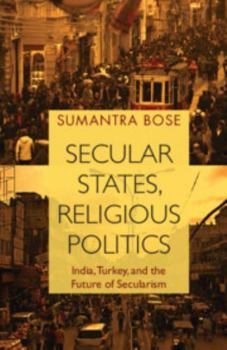Secular States, Religious Politics: India, Turkey, and the Future of Secularism
Select Format
Select Condition 
Book Overview
A pioneering comparative study of the two major attempts to build secular states - where the state's constitutional identity and fundamental character are not based on or derived from any religious faith - in the non-Western world. This book explains the origins, evolution and latterly the decline of secularism as a core principle of the state in India and Turkey. The anti-secular political transformations of the twenty-first century are the rise of a Sunni-Islamist definition of Turkish national identity to hegemonic power, and Hindu nationalism as India's pre-eminent political force. Both secular-state models adopted a similar operational doctrine of state intervention in and regulation of the religious sphere, rather than a Western-style separation of church and state. But, Turkish state-secularism took a culturally deracinated and harshly authoritarian form that led to its failure, whereas India's secular state - though flawed in practice - followed a culturally rooted and democratic path that makes secularism indispensable to India's future.
Format:Paperback
Language:English
ISBN:1108454860
ISBN13:9781108454865
Release Date:May 2018
Publisher:Cambridge University Press
Length:388 Pages
Weight:1.12 lbs.
Dimensions:0.9" x 6.1" x 8.9"
Customer Reviews
0 rating





